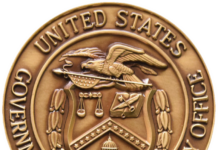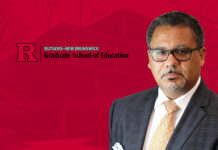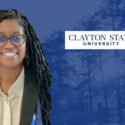 A new report from the U.S. Department of Education offers data on enrollments at for-profit postsecondary educational institutions. The report shows that Blacks make up 16 percent of all undergraduate students in all postsecondary institutions combined.
A new report from the U.S. Department of Education offers data on enrollments at for-profit postsecondary educational institutions. The report shows that Blacks make up 16 percent of all undergraduate students in all postsecondary institutions combined.
But if we look only at four-year colleges and universities, we find that Black are 13 percent of all students at private, nonprofit educational institutions and 13 percent of the students at state-operated schools. But Blacks are 27 percent of the total enrollments at for-profit educational institutions.
At two-year colleges and schools, Blacks are 16 percent of all students at two-year, state-operated community colleges. But Africans Americans are 22 percent of all students at two-year, for-profit colleges and schools and 27 percent of all students at schools that are for-profit but are for less than two years.










Thank you for the info. I find this to be a disturbing factoid – considering the alarming reports on some of these for profit educational institutions.
Now that we know, can we now look at why those numbers are as such?
Rodney, the most critical reason is the lack of preparation at the high school level. Many students coming into these for profit schools need massive remediation and support. So here you will have a group of students taking 6-7 to get the 4 year degree because of the lack of preparation – most of which withdraw before the junior year. Average graduation rate is around 30%
Continuing to find these facts in 2017 is a bit disheartening. Anyone who has even done a quick google search can see that many of these schools are simply scams. Every year I see some sort of racial gap/disparity article regarding black students and think about the successful black folks in my life and go forth wondering why this is so…
I think, in general, us readers (educated African Americans in particular) are not the true target audience for this valuable info. I wonder how we can get these facts to the people (influencers and community leaders) who need to be educated about this stuff and can change the narrative.
Just one black reader’s thought.
John-
This is the elistist, brainwashed mantlity that I can’t stand from blacks like you. Instead looking at this as an issue that disproportionately targets our race, it’s typical for someone with your cognition you to say well, this does not pertain to me or other “successful black folks,” as if you view yourself and similar blacks as exceptional.
Perhaps the so called “Educated African-American” readers on this site could find a way could to communicate this information with leaders and mentors or find other solutions.
Wake up!
Identifying “many of these schools [as] simply scams,” is a bit too harsh for my taste. What I am willing to say is that for many of these students attending for-profits, who are probably also disproportionately poor, attending a for-profit school over a similarly-situated non-profit is probably not in their best interests, particularly for-profits that are more expensive and will thus leave that student with a bigger financial burden to shoulder. post-graduation or just post-anything.